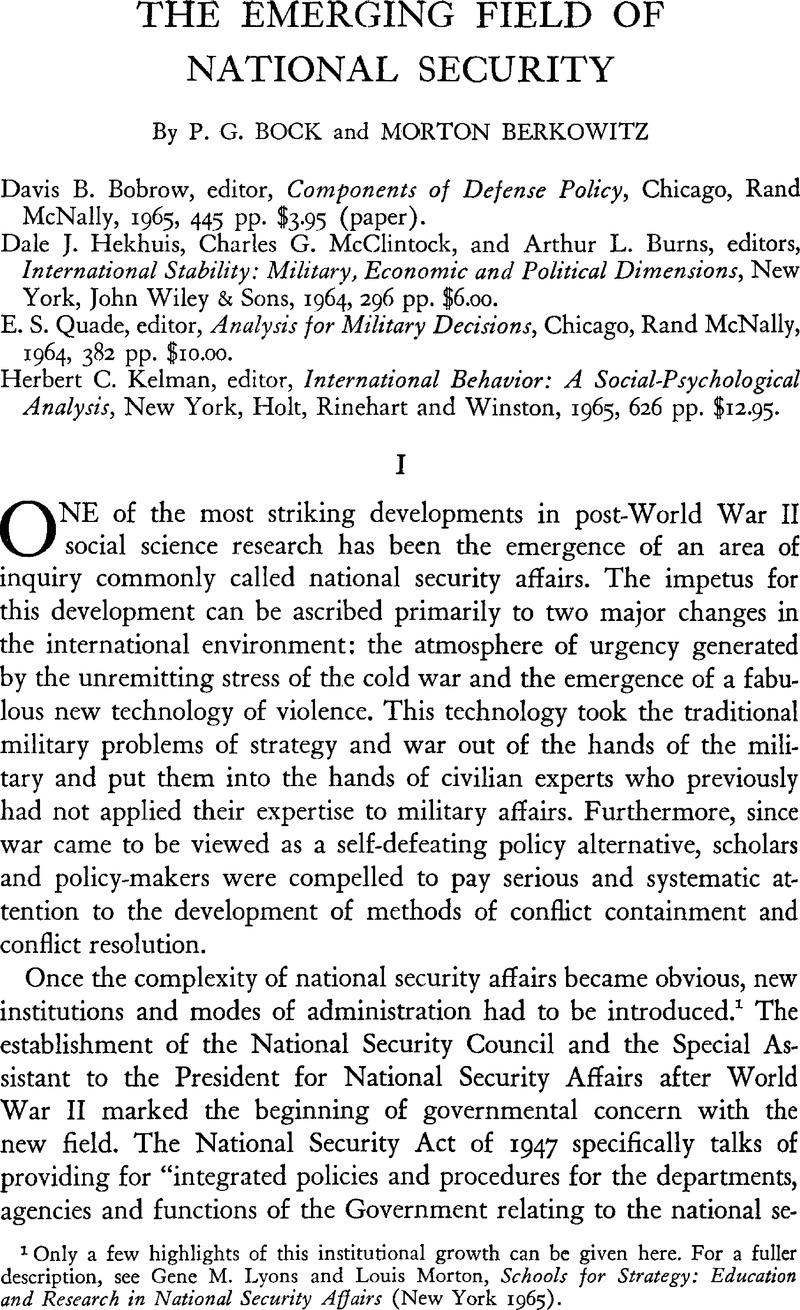Article contents
The Emerging Field of National Security
Review products
Published online by Cambridge University Press: 18 July 2011
Abstract

- Type
- Review Article
- Information
- Copyright
- Copyright © Trustees of Princeton University 1966
References
1 Only a few highlights of this institutional growth can be given here. For a fuller description, see Lyons, Gene M. and Morton, Louis, Schools for Strategy: Education and Research in National Security Affairs (New York 1965Google Scholar).
2 The very titles of the institutions established by the Act, by containing the phrase ”national security” where in previous periods ”military affairs,” ”foreign affairs,” or ”foreign policy” would have been more likely choices, indicate an emerging awareness of the need for a new concept. Moreover, the wording of the Act suggests that national security was beginning to be considered a broad area of related policies and not merely one of many national objectives. These points will be amplified later in this article.
3 See, for example, Gilpin, Robert and Wright, Christopher, eds., Scientists and National Policy-Making (New York 1964Google Scholar); and Rapoport, Anatol, Strategy and Conscience (New York 1964Google Scholar).
4 See Berkowitz, Morton and Bock, P. G., American National Security: A Reader in Theory and Policy (New York 1965), esp. p. x and Bibliography.Google Scholar
5 Ibid., ix-xiii.
6 A Preface to Democratic Theory (Chicago 1956).Google Scholar
7 The Idea of National Interest: An Analytical Study in American Foreign Policy (New York 1934)Google Scholar.
8 In Defense of the National Interest: A Critical Examination of American Foreign Policy (New York 1951Google Scholar).
9 ”‘National Security’ as an Ambiguous Symbol,” Political Science Quarterly, LXVII (December 1952), 481–502.Google Scholar
10 U.S. Foreign Policy: Shield of the Republic (Boston 1943), 51.Google Scholar
11 (New York 1957).
- 14
- Cited by


